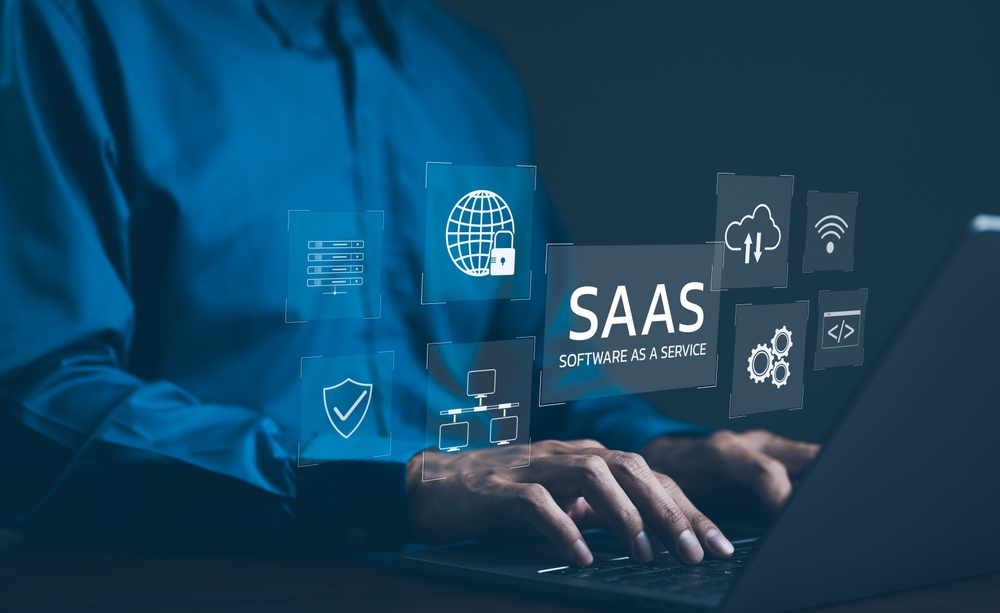How Artificial Intelligence Is Replacing Tech Jobs
How Artificial Intelligence Is Replacing Tech Jobs the technological revolution is upon us, and at its forefront is artificial intelligence (AI). For many, AI represents the future—an exciting horizon of automation, efficiency, and breakthrough innovations. However, for others, particularly those in the tech industry, AI also presents a daunting reality: the possibility that artificial intelligence replacing tech jobs is not a distant phenomenon, but one that is happening right now.
The relationship between AI and the workforce is complex, with both opportunities and challenges emerging as AI technology becomes increasingly integrated into various sectors. In this article, we’ll explore how AI is transforming the tech industry, focusing on its role in replacing specific job functions, the benefits and concerns of this shift, and the strategies tech professionals can adopt to stay relevant in an AI-driven world.

The Power of AI in the Tech Industry
Artificial intelligence is not a single technology; rather, it’s an umbrella term for a range of systems designed to mimic human intelligence. From machine learning algorithms that analyze data patterns to neural networks that simulate brain function, AI encompasses a vast array of technologies aimed at solving problems more efficiently than humans. Its applications in the tech industry are diverse and expanding rapidly.
From improving cybersecurity to enhancing data processing capabilities, AI’s influence is seen across all aspects of the tech ecosystem. But with AI’s growing dominance, it raises an inevitable question: How will this impact human labor?
The Rise of Automation in the Tech Industry
Automation is one of the key drivers behind artificial intelligence replacing tech jobs. The most straightforward example is the automation of repetitive, time-consuming tasks. Previously, workers performed these tasks manually—be it coding, testing, or data entry. Now, AI-powered tools are capable of completing these tasks with greater speed and accuracy, rendering many traditional job roles less necessary.
Take the example of software development. AI-powered platforms, such as GitHub Copilot, can now write, suggest, and complete code on behalf of developers. In some cases, these tools can even debug and optimize code. This means developers who previously spent hours writing code may find that their jobs are increasingly focused on higher-level, strategic decision-making rather than routine programming. While these changes enhance productivity, they also suggest that developers could face job displacement in certain areas of their work.
Which Tech Jobs Are Most at Risk?
AI’s ability to automate tasks that were once the responsibility of humans means certain roles in the tech industry are more vulnerable to artificial intelligence replacing tech jobs than others. Let’s explore which jobs are most at risk and how they are being impacted.
Software Development and Coding
As mentioned earlier, AI’s impact on software development is already being felt. AI tools are capable of generating code, automating testing procedures, and performing debugging tasks. For developers, this could result in significant job displacement in areas where their tasks are repetitive and routine.
While the role of a developer won’t be entirely obsolete, AI is changing the landscape. Developers may find themselves focusing on higher-order problem-solving tasks, working alongside AI systems to ensure that they function as intended. However, those who are unable to adapt to these changes may find themselves out of work, as demand for basic coding functions declines.
Data Entry and Analysis
Data analysts and those in data entry positions are also at risk of displacement by AI technologies. AI systems are already capable of analyzing large datasets at an unprecedented speed, identifying patterns and generating insights with little to no human intervention. Tools such as machine learning models can clean data, perform statistical analysis, and even make predictions based on historical trends.
While AI’s ability to perform these tasks offers tremendous value in terms of efficiency and scalability, it also means that roles focused on manual data entry and analysis are becoming obsolete. Workers in these positions may need to develop new skill sets, such as expertise in AI systems or data science, to remain competitive in the workforce.
Quality Assurance and Testing
Quality assurance (QA) and testing are crucial components of software development. Traditionally, human testers have been responsible for identifying bugs, glitches, and other issues in software before it is released. However, AI is already starting to take over this role with the advent of automated testing tools.
AI-powered testing platforms can simulate user behavior, identify potential vulnerabilities, and even predict how software will behave under different conditions. This automation reduces the need for human testers, especially in environments where the same tests are performed repeatedly. In the future, QA testers may transition to more strategic roles where they oversee the integration and performance of AI tools rather than conduct manual tests themselves.
Cybersecurity
Cybersecurity is another area in which AI is making significant strides, and unfortunately, it is also an area where job displacement is likely. AI’s ability to quickly analyze vast amounts of data, detect anomalies, and predict potential threats is revolutionizing the way organizations defend against cyberattacks.
While human expertise is still essential in interpreting complex threats and responding to novel attacks, AI can automate many of the routine tasks that were once handled by cybersecurity professionals. For instance, AI tools can monitor network traffic, identify suspicious activity, and respond to common threats automatically. As AI becomes more capable, cybersecurity workers may find that their roles shift toward strategic oversight and response to more sophisticated or previously unseen threats.
IT Support and System Administration
IT support and system administrators are often the first line of defense when it comes to troubleshooting software and hardware issues. However, AI is now able to automate many aspects of this work. For example, chatbots and virtual assistants can handle customer inquiries, providing troubleshooting advice and solutions to common problems.
Additionally, AI-powered systems can monitor networks, detect issues, and even resolve minor problems without human intervention. As AI takes over these routine tasks, the need for human IT support workers may diminish, particularly in environments where automation can handle the majority of the workload.
The Benefits and Challenges of AI Replacing Tech Jobs
AI’s ability to automate and replace human jobs offers both benefits and challenges. On the one hand, AI can lead to increased productivity, reduced human error, and lower costs for businesses. On the other hand, the displacement of jobs presents significant challenges for workers in the tech industry.
The Benefits of AI in Tech
- Increased Efficiency: AI can handle repetitive tasks at a much faster rate than humans, allowing employees to focus on more creative and complex work. For businesses, this leads to improved productivity and faster innovation cycles.
- Cost Reduction: Automation through AI reduces the need for large human workforces. Businesses can save on labor costs by implementing AI tools that perform tasks traditionally done by multiple employees.
- Improved Accuracy: AI systems are capable of performing complex analyses with a high degree of accuracy, reducing human error and improving decision-making processes.
- Fostering Innovation: As AI takes over routine tasks, employees can focus on more strategic and innovative projects, leading to the development of new technologies and solutions.
The Challenges of AI Replacing Tech Jobs
- Job Displacement: One of the most obvious challenges is the displacement of human workers. Many tech jobs, particularly those focused on routine tasks, are at risk as AI systems take over. This can lead to increased unemployment and economic inequality if displaced workers are unable to transition into new roles.
- Skill Gaps: As AI becomes more prevalent, the demand for workers with specific skills—such as machine learning, data science, and AI system integration—will rise. This could lead to a skills gap where workers in traditional tech roles may struggle to adapt to the changing landscape.
- Loss of Human Touch: While AI is efficient, it lacks the human touch that is often crucial in tech fields. AI systems may struggle with tasks that require emotional intelligence, creativity, or human intuition, and as such, a purely AI-driven workforce could result in a loss of the personal and creative aspects that human workers bring to the table.
How to Adapt to the Rise of AI
Despite the challenges posed by artificial intelligence replacing tech jobs, there are several steps tech professionals can take to remain competitive in an AI-driven world. Here are a few strategies for adapting to the rise of AI:
1. Upskill and Reskill
To stay relevant in the tech industry, it’s essential to keep learning. Gaining expertise in AI-related fields such as machine learning, data science, and AI system design can help workers transition into new roles that AI is creating. Many online platforms, including Coursera and Udemy, offer courses in these areas, allowing tech professionals to upskill and remain valuable in the workforce.
2. Embrace AI Tools
Rather than seeing AI as a competitor, workers should embrace it as a tool that can enhance their productivity. AI-powered platforms can help developers write code, data scientists analyze data, and cybersecurity experts detect threats. By integrating AI into their daily workflows, professionals can become more efficient and remain indispensable.
3. Focus on Creativity and Strategic Thinking
While AI can handle routine tasks, it cannot replicate human creativity and strategic thinking. Tech professionals should focus on developing these uniquely human skills, which will be increasingly valuable as AI takes over more technical tasks. By focusing on innovation, leadership, and problem-solving, workers can carve out a niche for themselves in roles that require human judgment and creativity.
4. Stay Agile
The tech industry is constantly evolving, and AI is just one example of how the landscape is changing. To thrive in this dynamic environment, professionals need to remain flexible and adaptable. By staying up to date with the latest advancements in AI and other technologies, workers can pivot to new opportunities as they arise.
The rise of AI and its role in artificial intelligence replacing tech jobs is an undeniable reality. While it presents challenges, it also opens doors to new opportunities for those who are willing to learn and adapt. The key is not to resist the changes AI brings but to embrace them, using AI as a tool for greater efficiency, creativity, and innovation.
In the face of automation and AI-driven disruption, tech professionals must focus on continuous learning, adaptability, and creativity to ensure their relevance in an ever-evolving landscape. By doing so, they will not only survive but thrive in a world where AI plays an increasingly central role.





